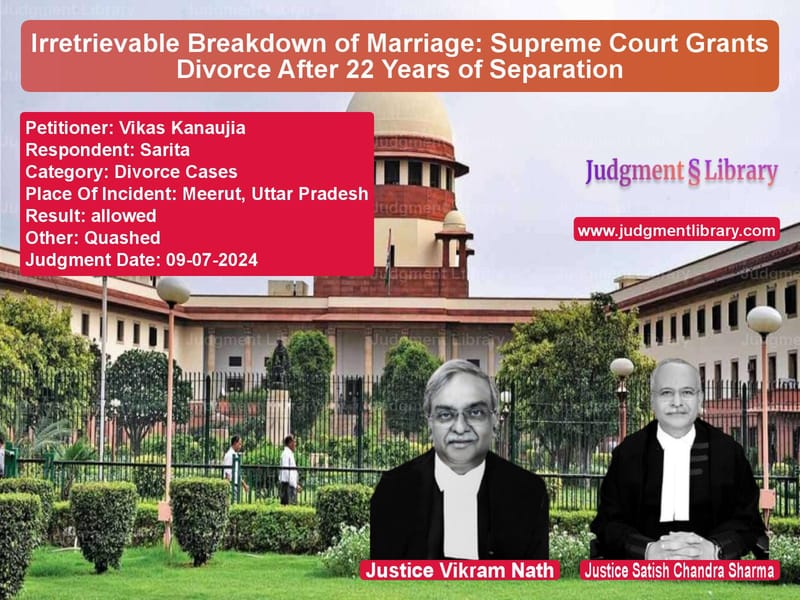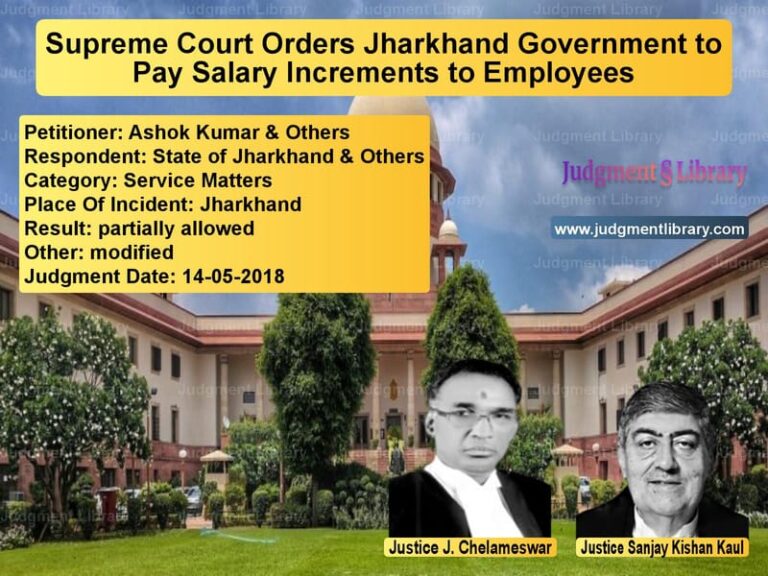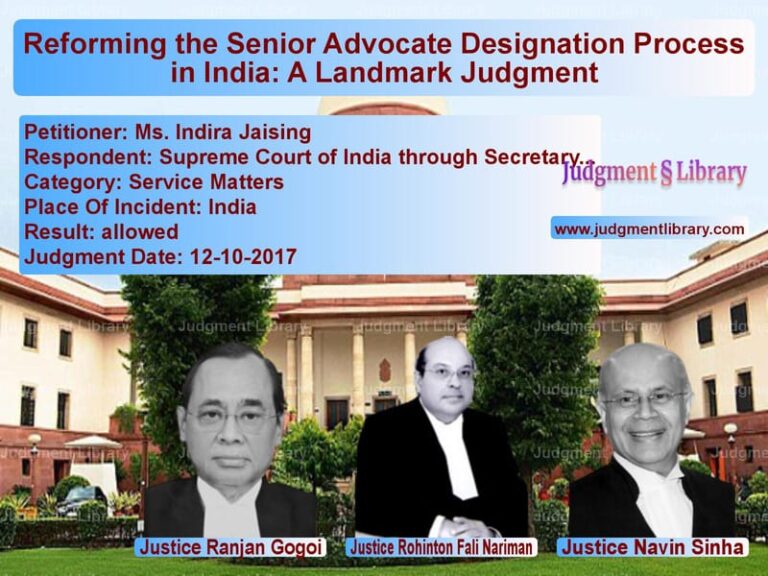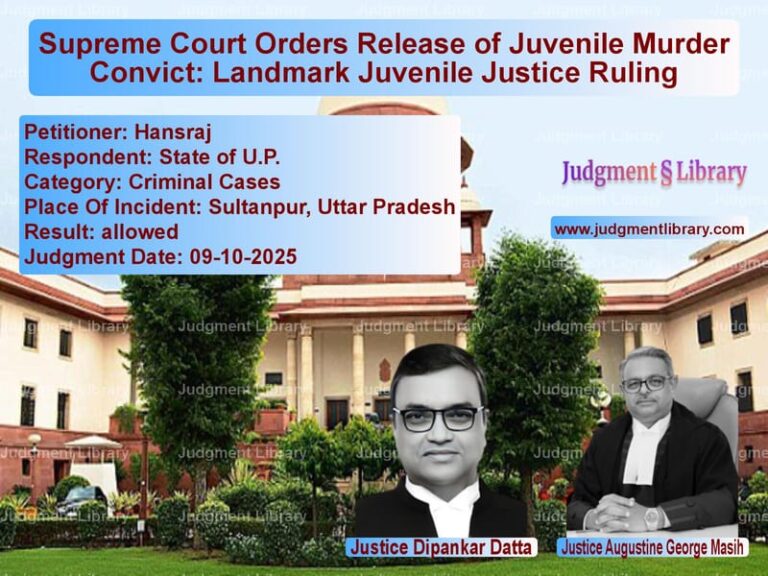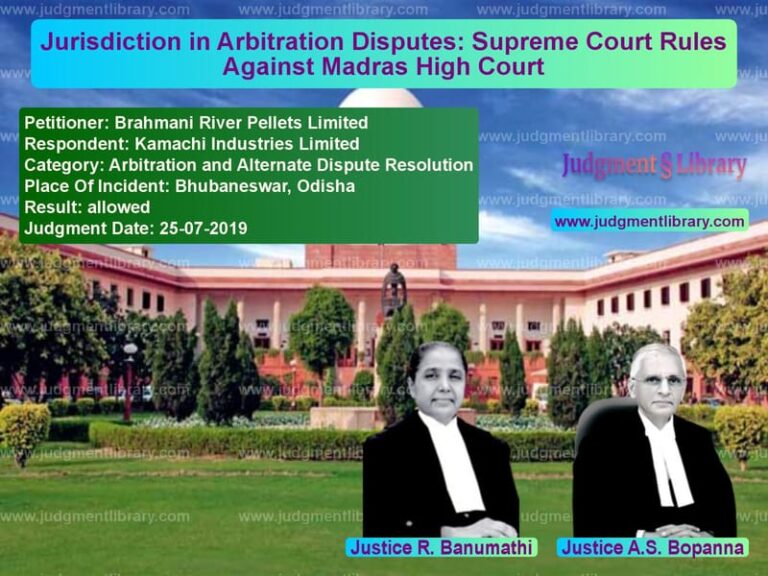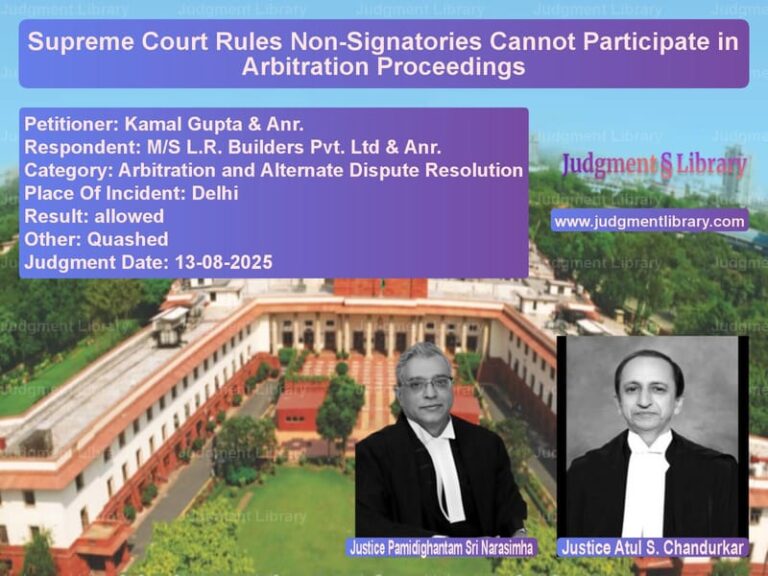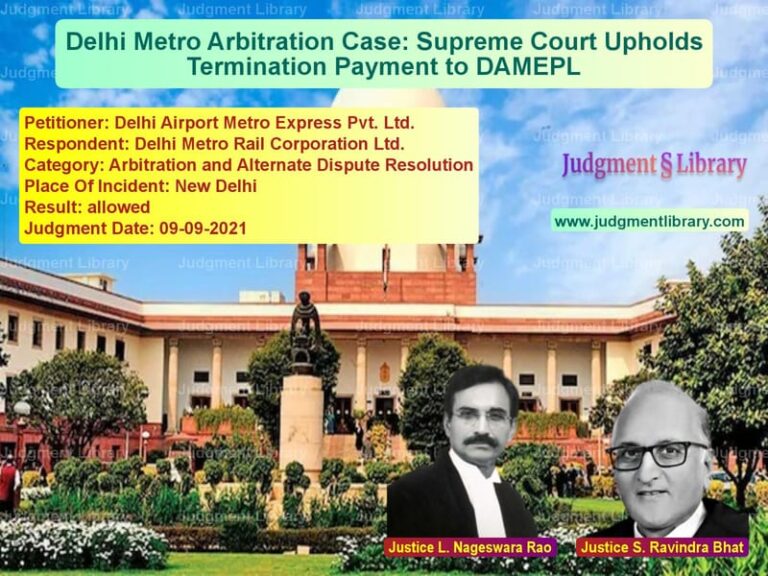Irretrievable Breakdown of Marriage: Supreme Court Grants Divorce After 22 Years of Separation
The case of Vikas Kanaujia v. Sarita presents an important legal question regarding the dissolution of marriage on the ground of irretrievable breakdown. The Supreme Court, in its judgment dated July 10, 2024, exercised its extraordinary powers under Article 142 of the Constitution of India to grant a decree of divorce after 22 years of prolonged litigation. The Court held that when a marriage has completely failed, forcing parties to remain legally bound serves no purpose and only leads to further bitterness and harassment.
The ruling reaffirms the Supreme Court’s discretion to dissolve marriages even when one party opposes the divorce, provided the facts establish that the marriage is beyond repair. This judgment is significant as it highlights the importance of recognizing long periods of separation and legal battles as evidence of a broken marriage.
Background of the Case
The dispute began with the marriage of the parties on February 20, 2002, which lasted only 23 days before the respondent-wife left the marital home. The series of events that followed included legal battles spanning over two decades.
- February 20, 2002: The parties were married in accordance with Hindu rites and customs.
- February 22, 2002: The respondent left the marital home with her relatives, leading to the first instance of separation.
- March 4, 2002: The appellant brought the respondent back to the marital home.
- March 17, 2002: The respondent again left the marital home after a family function and never returned.
Legal Proceedings Initiated
Following the separation, the parties engaged in multiple legal proceedings:
- Restitution of Conjugal Rights: The appellant filed a suit under Section 9 of the Hindu Marriage Act, seeking the respondent’s return.
- Maintenance Claims: The respondent filed a case under Section 24 of the Hindu Marriage Act for maintenance, which was later rejected.
- Divorce Petition: On February 26, 2003, the appellant filed a divorce petition under Section 13 of the Hindu Marriage Act on the ground of cruelty.
- Criminal Complaints: The respondent filed an FIR against the appellant and his family members under Sections 498A, 406, and 34 of the Indian Penal Code, alleging dowry harassment.
- Arrests and Acquittals: In 2005, the appellant’s family members were arrested. However, they were later discharged, and in 2017, the appellant and his mother were acquitted of all charges.
- High Court Appeal: The Family Court granted divorce in 2006, but the respondent challenged the decision in the High Court of Allahabad, which overturned the divorce decree in 2019.
Supreme Court’s Observations
The Supreme Court examined the case extensively and made the following key observations:
1. Marriage Has Irretrievably Broken Down
The Court noted that the couple had lived together for only 23 days initially and an additional 20 days in 2005 due to a conciliation order. Since then, they had been living separately for over 22 years. The Court ruled:
“The effective cumulation of actions of both the parties in the past 22 years since marriage has resulted in the demolition of their matrimonial bond beyond repair.”
2. Long Separation is a Valid Ground for Divorce
The Court cited previous judgments, emphasizing that when parties have lived apart for an extended period, insisting on the continuation of marriage serves no purpose:
“Continued bitterness, dead emotions, and long separation, in the given facts and circumstances of a case, can be construed as a case of ‘irretrievable breakdown of marriage,’ which is also a facet of ‘cruelty.’”
3. Article 142 Allows Grant of Divorce Even if One Party Opposes
The Court referred to the Constitution Bench decision in Shilpa Shailesh v. Varun Sreenivasan, where it was held that the Supreme Court has the discretion to dissolve a marriage under Article 142 when it has completely failed, even if one spouse opposes the divorce.
“This Court, in exercise of power under Article 142(1) of the Constitution of India, has the discretion to dissolve the marriage on the ground of its irretrievable breakdown.”
4. Respondent’s Conduct Was Not in Line with Her Claims
The respondent claimed that she wanted to continue the marriage. However, the Court found her actions inconsistent with this claim:
- She had filed multiple criminal cases against the appellant and his family.
- She had registered a missing person complaint against the appellant, leading to unnecessary harassment.
- She disrupted the appellant’s workplace, causing professional embarrassment.
Supreme Court’s Final Verdict
The Supreme Court, after analyzing the facts and legal precedents, ruled:
- The judgment of the Allahabad High Court dated August 22, 2019, was set aside.
- The marriage between the parties was dissolved under Article 142 of the Constitution.
- No alimony was awarded, considering both parties were financially independent doctors.
Conclusion
The judgment in Vikas Kanaujia v. Sarita reinforces the principle that when a marriage is beyond repair, forcing parties to remain legally bound leads to further emotional distress and legal harassment. The Supreme Court’s decision ensures that legal remedies are available for individuals trapped in dead marriages and suffering due to prolonged litigation.
Petitioner Name: Vikas Kanaujia.Respondent Name: Sarita.Judgment By: Justice Vikram Nath, Justice Satish Chandra Sharma.Place Of Incident: Meerut, Uttar Pradesh.Judgment Date: 09-07-2024.
Don’t miss out on the full details! Download the complete judgment in PDF format below and gain valuable insights instantly!
Download Judgment: vikas-kanaujia-vs-sarita-supreme-court-of-india-judgment-dated-09-07-2024.pdf
Directly Download Judgment: Directly download this Judgment
See all petitions in Alimony and Maintenance
See all petitions in Dowry Cases
See all petitions in Mutual Consent Divorce
See all petitions in Judgment by Vikram Nath
See all petitions in Judgment by Satish Chandra Sharma
See all petitions in allowed
See all petitions in Quashed
See all petitions in supreme court of India judgments July 2024
See all petitions in 2024 judgments
See all posts in Divorce Cases Category
See all allowed petitions in Divorce Cases Category
See all Dismissed petitions in Divorce Cases Category
See all partially allowed petitions in Divorce Cases Category

